Tranalysis
The Third Plenary Session of the 20th Central Committee of the Communist Party of China decided to point out that high-quality development is the primary task of comprehensively building a modern socialist country. We must lead reform with new development concepts, base ourselves on the new development stage, deepen supply-side structural reforms, improve incentive and restraint mechanisms to promote high-quality development, and create new driving forces and new advantages for development.
Industry associations and chambers of commerce can play an important role in improving the incentive and restraint mechanism to promote high-quality development. The reason is that "the association is not just the sum of its members. They have the power to change their preferences or behaviors to get member companies to do things they would not otherwise do." (Richard. F. Doner, 2000)"There are good reasons to believe that, unlike other similar meta-organizations, industry associations play a unique role in modern society because of their available resources and levels of expertise, as well as the special nature of their members." (Ahrne and Brunsson, 2005) The Association Chamber of Commerce mainly promotes and encourages enterprises to transform and upgrade, develop new quality productivity, create new development drivers and new advantages, and promote high-quality economic development in the following aspects:
1. Promote economic circulation.The media bridging function of associations and chambers of commerce can effectively eliminate blockages in the economic cycle through consultation, communication and coordination between the government and enterprises, between industries, between regions, and between producers and consumers. Trade fairs, forums, and the connection of domestic and international supply chains organized by associations and chambers of commerce can effectively promote the connection of domestic and international circulation.
For example, industry associations across the province in Guangdong Province provide 16,000 consulting services, 300 investment invitations, and organize 1400 visits annually, creating direct economic value of 50 billion yuan every year. The China (Shenzhen) International Logistics and Supply Chain Expo, founded by the Shenzhen Logistics and Supply Chain Management Association, has become a landmark exhibition in the global modern logistics and supply chain industry. In response to Japan's discriminatory trade barriers to my country's laver exports, the Jiangsu Province Laver Association, together with its counterparts in the province, filed an investigation application with the Ministry of Commerce, winning the "China Trade Barriers First Case" and opening the door for China's laver exports. [Jing Chaoyang et al.: Development Report of Zhongguancun Industry Association and Chamber of Commerce,"Development Report of China Industry Association and Chamber of Commerce"(2014), Social Science Literature Press, April 2015.]
2. Develop technical standards.Technical standards and management standards are effective incentive and restraint mechanisms to promote high-quality development. Setting standards is also an important way for associations to reduce buyer information costs. Since a supplier fails to meet the standards will damage the reputation of all producers in the industry or region, the Association and Chamber of Commerce will take measures to encourage all members to abide by the standards, thereby creating new momentum and new advantages for high-quality development. There are many cases in which industry associations formulate group standards and participate in the formulation of national standards. For example, Beijing City Municipal Industry Association and Chamber of Commerce have formulated 806 industry standards. Beijing City IGRS Information Industry Association has gathered leading domestic information industry companies such as Lenovo, TCL, and Huawei, and has innovated 7 ISO international standards in one year.
3. Encourage quality upgrades.Many associations and chambers of commerce use incentives to help member companies improve technology, processes and improve employee skills to promote quality upgrades. This includes providing relevant information to members, establishing quality inspection agencies with government support to ensure quality control of member companies, promoting quality control procedures and methods, organizing technical and management discussions and organizing related inspections. For example, the Wenzhou Shoe Leather Industry Association participated in quality construction and reshaped the image of Wenzhou Shoes Industry. The Shenzhen Watch Inspection Center, jointly invested and established by the Shenzhen Watch Industry Association and the Municipal Government, has played an important role in promoting the quality improvement of Shenzhen's watch industry.
4. Promote technological and management innovation.An innovation system is a system of all important economic, social, political, organizational, institutional and other factors that affect the progress and spread of technology. The broad national innovation system includes intermediary organizations such as industry associations and chambers of commerce. The most important function of an innovation system is the proliferation of knowledge-related innovation results. The Chamber of Commerce is an organization that has connections between knowledge creators and commodity producers. "It can be expected that intermediaries such as industry associations will inevitably become important participants"(Andrew Watkins, Theo Papaioannou,2016). Associations and chambers of commerce are themselves a network and a multiplier in the innovation system (Knut Koschatzky,2014).
According to our research, industry associations and chambers of commerce not only play the role of intermediaries in the national innovation system, but also play the role of quasi-public institutions. Its main functions are:
one isPlay a leading and promoting role, make recommendations to the government and make initiatives to members on technological innovation;
second isGive full play to the organizational and coordination role, such as organizing relevant enterprises to carry out technical research;
third isSupport the construction of innovative infrastructure, such as establishing R & D institutions and incubators;
fourth isUnder certain conditions, the Association and Chamber of Commerce are also directly engaged in research and research and development of technological innovation.
Judging from actual cases, many associations and chambers of commerce in my country have established infrastructure such as innovation research and incubators, and many results have emerged. For example, the "Research and Industrial Application of Key Engineering Technology of the Third Generation Mobile Standard" developed by the Beijing Time-Division Mobile Communications Industry Association won the first prize in the 2012 National Science and Technology Progress Award, directly stimulating and promoting nearly one trillion yuan in investment and creating 430,000 jobs. The Henan Chamber of Commerce in Jiaxing City, Zhejiang Province has established a member science and technology development incubator, which has incubated and cultivated more than 40 enterprises and obtained more than ten invention patent authorizations.
5. Promote the transformation and development of new technology industries and digital intelligence.Associations and chambers of commerce can promote the digital and intelligent transformation of enterprises through forums and lectures, establish an expert database to guide members in providing consultation, help enterprises train digital and intelligent professionals, and build industry digital platforms.
For example, the Wuxi City Internet of Things Industry Association has been recognized by the Wuxi City Government as a key promotion organization for modern industrial clusters, actively promoting the high-quality development of the Internet of Things industry and digital economy in Wuxi City. By holding special forums such as the "Enterprise Digital Transformation Forum" and "Industrial Intelligent Development Forum", hosting sub-forums of the World Internet of Things Expo, building exhibition halls such as the "Zhilian Sunac Theme Pavilion" and "5G Intelligent Manufacturing Workshop", opening the Internet of Things and Industrial Internet technology and applications, automated software testing, data structure and algorithms and other public welfare training courses, etc., promote the digital and intelligent transformation of Wuxi enterprises.
Judging from the status of associations and chambers of commerce in promoting high-quality development, some associations and chambers of commerce have made important contributions to high-quality economic development, while other associations have failed. Practice has shown that this is related to the quality of the association and chamber of commerce. Generally speaking, associations with poor resources, lack representation and professional talents, and poor governance and management can rarely play a role in promoting the market economic system and high-quality economic development, let alone correcting government and market failures. contribute.
Judging from the theory of associations and the practice of excellent associations and chambers of commerce, in order to improve the ability to promote and contribute to economic development, we must strengthen our own construction in the following aspects:
The first is to enhance the ability to absorb resources and improve economic strength.Efforts should be made to increase the density and coverage of members to enhance representation and coordination capabilities; to expand services to enterprises and undertake government-purchased service projects to increase the income of associations and chambers of commerce; to create associations and chambers of commerce brands, improve their own credibility and win more Social capital and relational capital. Only in this way can we improve our ability to promote economic development and enhance internal cohesion.
The second is to professionalize Secretariat staff and strengthen internal management.It is necessary to hire highly educated and young professionals according to service needs to provide talent support for the government services and corporate services of associations and chambers of commerce. For example, in the seven associations with strong economic promotion capabilities in Wuxi City, including the software industry, the Internet of Things industry, high-tech enterprises, the science and technology equipment industry, the robot industry, information technology, and the intelligent industry industry, the total number of full-time staff in the secretariats reaches 71, the largest of which is 13. They are all young people with university degrees. Some secretaries-general and deputy secretaries-general also have postgraduate degrees. The number of people aged 25 to 40 accounts for more than 85% of the total number of staff in the Secretariat. These associations have established internal management systems and measures such as talent, projects, finance, salary, rewards, performance appraisal, and compliance supervision to continuously improve service efficiency.
The third is to continuously improve the internal governance of associations and chambers of commerce.It is necessary to establish the purpose, service goals, and accountable and binding commitments to create value for members; it is necessary to fully promote member democracy and improve the transparency of decision-making and management; it is necessary to properly handle the division of functions between the board and the secretariat, the chairman (president) and the secretary-general. The chairman is a volunteer and should focus on governance and major decisions. As the executive level, the secretary-general is equivalent to the CEO of the company, focusing on the implementation and daily management of the board's decisions.
For example, the Shenzhen Watch Industry Association (5A) aims to "condense, transform, and create value for the enterprise"; aims to create an industry culture of "positive and continuous improvement", promote industrial upgrading, and promote "branding and internationalization" of the enterprise. The association emphasizes the status of the member assembly and implements a differential democratic election system. The president is an entrepreneur, and the secretariat is presided over by the Secretary-General and is accountable to the board of directors. The Secretariat operates in an institutionalized and enterprise-oriented management model in terms of daily management of people, finances, and materials, and full-time financial personnel are openly recruited from the public. These distinctive governance systems are the institutional guarantees for their strong ability to promote economic development.
(The author Pu Wenchang is a senior researcher at the Development Research Institute of the Chamber of Commerce of Zhejiang Province and the Research Institute of Private Economy and Civil Organizations of Wuxi)




